This book is divided into three sections. The first section introduces one specific tradition of Siddhas transmitted by artists from Nepal. This artistic legacy, which is related to a corpus of texts that go back through Srisena and Bu ston, includes two paintings and an incomplete set of line drawings. One of the paintings is an early-sixteenth-century paubhª of Vajradhara surrounded by the eighty-four Siddhas (now preserved in the National Art Gallery, Bhaktapur). The set of line drawings of originally all eighty-four Siddhas (now in the Los Angeles County Museum of Art) goes back to the seventeenth century. On the basis of a comparison of the portraits of the eighty-four Siddhas in the painting from Bhaktapur (which provides the Siddhas’ names) and the line drawings (which also label the Siddhas) it is suggested that the eighty-two Siddhas surrounding the Siddha Virñpª in the other Nepalese painting, from the second quarter of the thirteenth century, which is now part of the Kronos Collections of S.M. Kossak, New York, are part of the same tradition. The Siddhas in this well-known and frequently reproduced painting have so far remained unidentified since their names are not inscribed in the painting. The second section of the book focuses on lesser known manifestations of (Cakra)samvara, a form of Heruka, and includes a discussion and reproduction of images of two groups of Samvaras. The first document is a painted scroll showing the group of sixty-four Samvaras with their consorts; the second one is a set of line drawings of what appears to be another group of Samvaras (thirty-six in number) with their consorts. The last section presents a set of line drawings which is based on a section of the parikramavidhi found in chapter 6 of Kuladatta’s Kriysamgraha. This text is an important Tantric manual which has been particularly influential in Nepal and whose author may even have been of Nepalese origin. The set of line drawings, which dates from approximately the eighteenth century, illustrates the ritual of walking around the site of a mandala. The line drawings are of great interest for the study of Buddhist ritual, since they illustrate a large number of stances, sitting postures and hand gestures described in the Kriysamgraha but whose names are not recorded in standard reference works on iconography.
Buddhist Iconography and Ritual in Paintings and Line Drawings from Nepal
$125.10
$139.00
In stock
Free & Quick Delivery Worldwide
All orders amounting to US$ 50 or more qualify for Free Delivery Worldwide. For orders less than US$ 50, we offer Standard Delivery at $14 per book.
ABOUT THE AUTHOR Gudrun Buhnemann
Gudrun Buhnemann is Professor at the Department of Languages and Cultures of Asia of the University of Wisconsin-Madison, U.S.A. Her major publications include Budha-Kausika’s Ramaraksastora: A Contribution to the Study of Sanskrit Deveional Poetery (Vienna: Institut fur Universaitat Wien, 1983); Puja: A Study in Smarta Ritual (Vienna: Institut fur Universitat Wien, 1983) Forms of Ganesa: A Study based on the Vidyarnavatantra (Wichtrach: Institut fur Indologie, 1989); and The Iconography of Hindu Tantri Deities, Volume 1: The Pantheon of the Mantramahodadhi. Volume II: The Pantheon of the Propancasara and the Saradatilaka (Groningen: Egbert Forsten, 2000-2001).
reviews
0 in total
Review by Anonymous
Be the first to review “Buddhist Iconography and Ritual in Paintings and Line Drawings from Nepal” Cancel reply
You must be logged in to post a review.
Bibliographic information
Title
Buddhist Iconography and Ritual in Paintings and Line Drawings from Nepal
Author
Edition
1st ed.
Publisher
ISBN
9789994693344
Length
227p., Col. & B/w Plates; Bibliography; Index; 28cm.
Subjects
tags
#Nepalmore by Gudrun Buhnemann see more
Sakyamuni’s Return Journey to Lumbini (lumbiniyatra): A Study of a Popular Theme in Newar Buddhist Art and Literature
According to Newar ...
$109.80
$122.00
The Life of the Buddha: Buddhist and Saiva Iconography and Visual Narratives in Artists’ Sketchbooks from Nepal
This book describes, ...
$225.00
$250.00

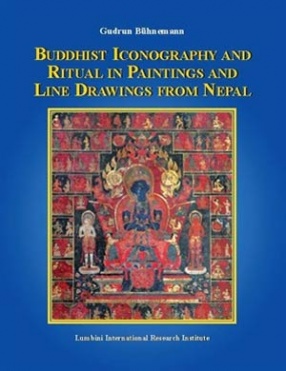
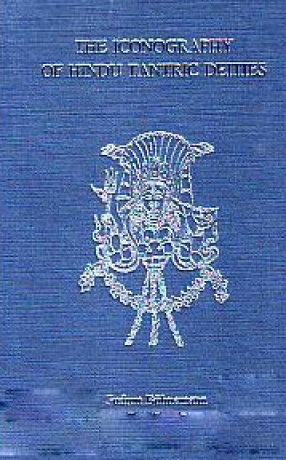
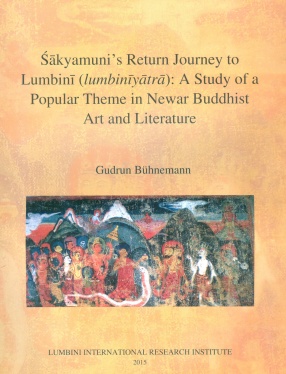
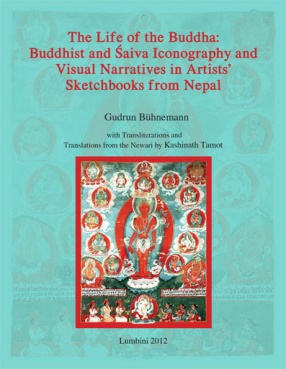
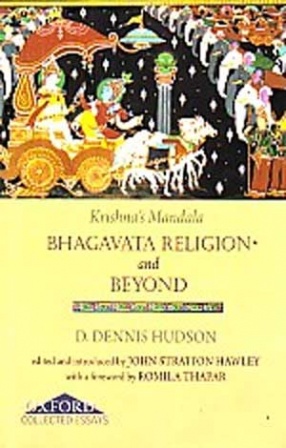

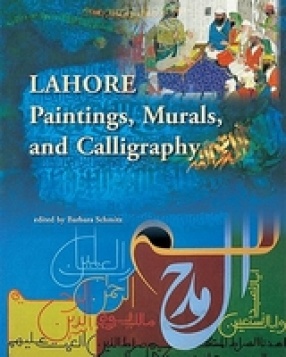
There are no reviews yet.